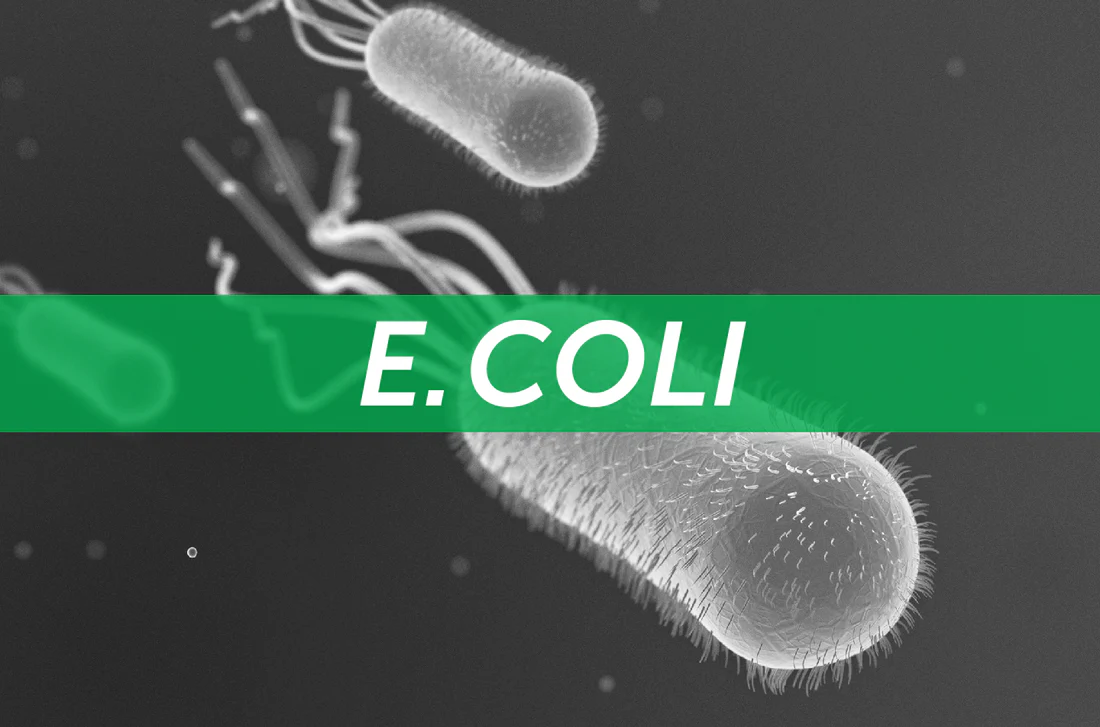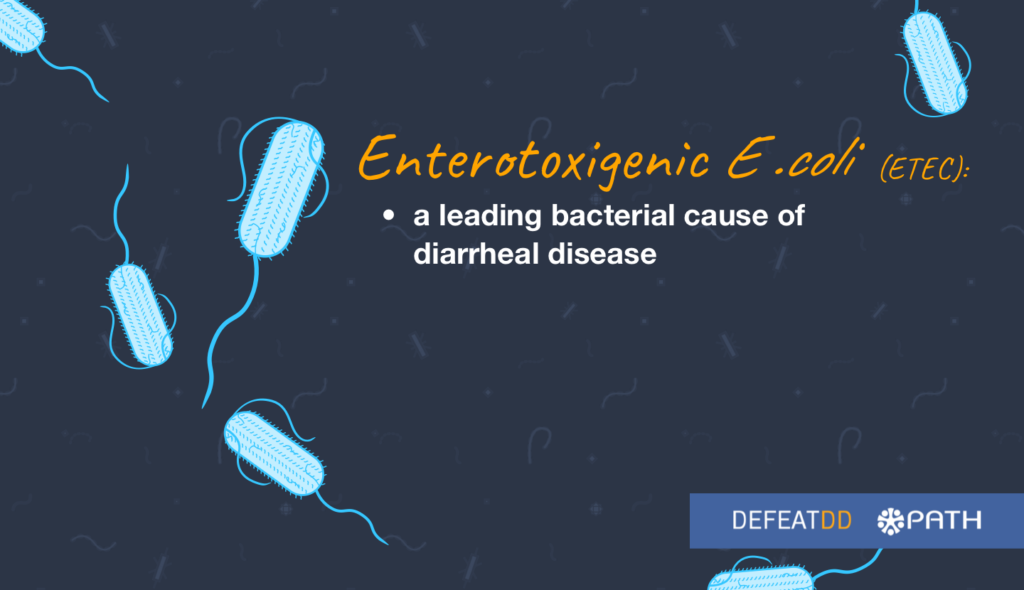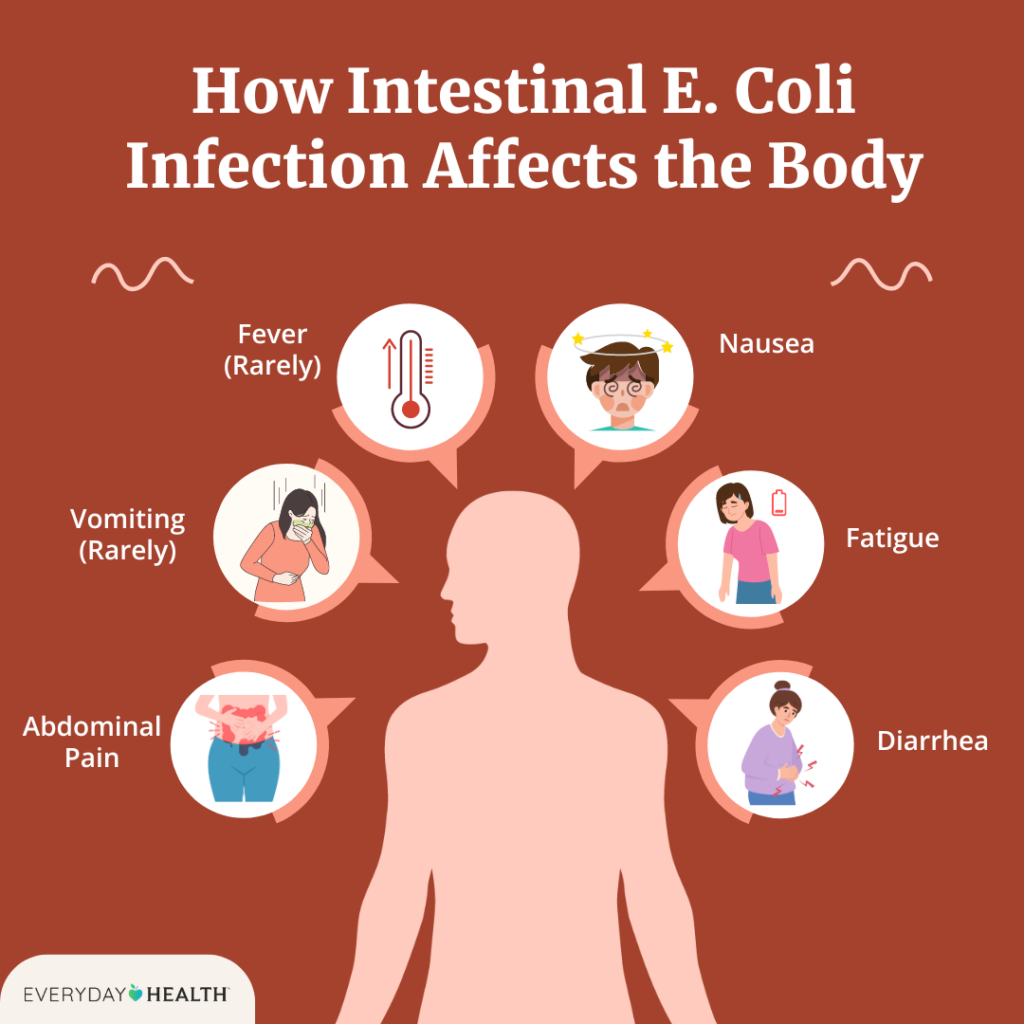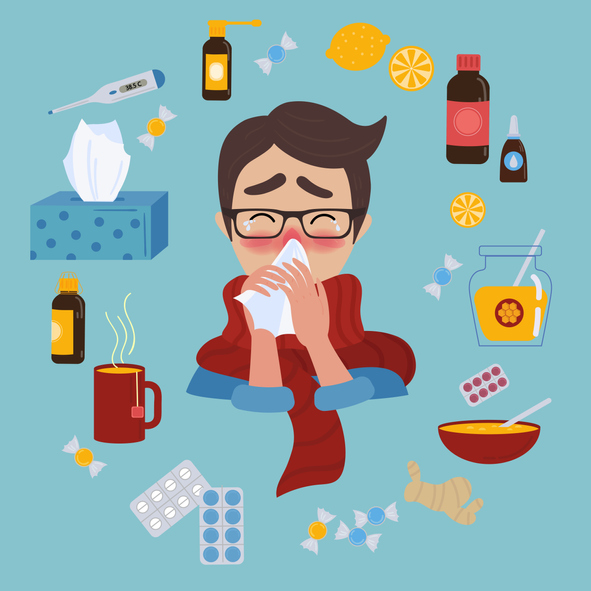KEY POINTS
- Six kinds of E. coli can cause diarrhea.
- Some of these E. coli also can cause other symptoms.
- People get infected with these E. coli in several ways

Symptoms of E. coli gastroenteritis include:
Watery diarrhea is usually the first symptom of an E. coli infection in your GI tract. You can also have different symptoms depending on where in your body you’re infected.
If E. coli infects parts of your urinary tract, you might have:
You usually develop symptoms of an STEC infection within three to five days after drinking or eating foods contaminated with this E. coli bacteria. Other strains can make you sick within hours. Sometimes, symptoms start up to 10 days after exposure.

E. coli are a large group of bacteria (germs).
Most E. coli are harmless and are part of a healthy intestinal tract. These E. coli help digest food, produce vitamins, and protect us from harmful germs.
But some E. coli can make people sick, including six kinds that cause diarrhea. They are
People can get infected with these E. coli in several ways. These ways include
All six kinds of E. coli can cause diarrhea. Some kinds can cause bloody diarrhea, watery diarrhea, or both.
Some of these E. coli can cause other symptoms, including stomach cramps, vomiting, and fever.
Other things that vary for these E. coli include
Symptoms of E. coli gastroenteritis include:
Watery diarrhea is usually the first symptom of an E. coli infection in your GI tract. You can also have different symptoms depending on where in your body you’re infected.
If E. coli infects parts of your urinary tract, you might have:
You usually develop symptoms of an STEC infection within three to five days after drinking or eating foods contaminated with this E. coli bacteria. Other strains can make you sick within hours. Sometimes, symptoms start up to 10 days after exposure.

How your provider diagnoses E. coli depends on what your symptoms are. If you have diarrhea or other digestive symptoms, your provider will test a stool (poop) sample for E. coli. If you have other symptoms, they might test your urine (pee), blood or cerebrospinal fluid (CSF).
Specific tests for E. coli include:
You often don’t need to treat E. coli infections that cause digestive symptoms. Healthcare providers specifically don’t treat STEC with antibiotics or antidiarrheal medicines. These medications can increase your risk of HUS if you have STEC. Instead, they’ll monitor your condition and give you fluids to prevent dehydration if needed.
But if you have another type of E. coli infection — like a UTI, meningitis or sepsis — or if your symptoms are severe, your provider will treat you with antibiotics.
Some antibiotics providers use to treat E. coli infections include:

The most important thing you can do to protect against E. coli infections is to wash your hands. It’s particularly important to wash them thoroughly with warm water and soap:
You can also reduce your risk of an E. coli infection by following safe food preparation procedures:
4517 Washington Ave, Manchester,
Kentucky .England 524163.
Phone : (480) 555-0103